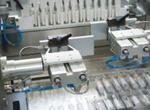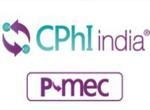“Every person engaged in the production, processing, packaging, or holding of pharmaceuticals shall have education, training, and experience, or any combination thereof so that the person can perform the assigned functions.”
WHY TRAINING IS ESSENTIAL PART IN PHARMACEUTICAL INDUSTRY AND STEPS TO DEAL WITH IT

Training is one of the basic elements of the pharmaceutical and biotechnology industries, because it can improve employees’ ability to understand the process and help investigate any problems that occur.
by-Dr. Tarun Chugh
SIMco Pharma Consultancy
For example, if a weight change occurs in a running machine, only the understanding and skilled operator can solve the problem on-site. It can happen if the operator in-charge is trained well on the subject. Also, insufficient training can lead to process and product changes.

CFR 211.25 Personnel qualifications say:
“Every person engaged in the production, processing, packaging, or holding of pharmaceuticals shall have education, training, and experience, or any combination thereof so that the person can perform the assigned functions.” Therefore, for anyone to work in the pharmaceutical or biotechnology, API, Medical device manufacturing industry, their job responsibilities must be fully trained and evaluated. A life science company that upholds and implements a quality culture ensures employees’ best training before touching the product to maintain and protect public health.
For this reason, an integrated quality/human resource (HR) system approach is recommended for development and deploy training. The training should implement in predefined SOPs and assessments. One should follow the following steps for developing an effective training program.
- Identify needs – engaging management and staff
To develop any training plan, you must understand the management or supervisor’s requirements for someone to take up the job or assume responsibility so that the process or topic is clear and people can complete their work with proper understanding and skills.
- Identify Subject Matter Experts (SMEs)
SMEs are experts who are responsible for providing comprehensive training and understanding of work and responsibilities. They are also responsible for designing training programs and evaluation protocols. Pay close attention to ongoing training programs that meet business needs. Therefore, they effectively conduct technical and skill training, share knowledge and information, and transfer learning.
- Preparing a steering committee for action
A group composed of cross-functional teams, each with expertise in their respective fields, formed a steering committee. The committee should understand the strategic significance of training and its related results.
- What is the current state assessment?
The responsibility of the steering committee is to assess the current status of the unit’s training. They must routinely evaluate their skills, a procedure that evaluates people working in the workshop.
- Identify strengths and gaps
Under normal circumstances or any problems arise, management and subject matter experts must investigate to find gaps. During the investigation process, they must find the system’s strengths and weaknesses and need to take appropriate CAPA (corrective and preventive measures) to solve the problem.
- Training module development team formation
According to the investigation and/or CAPA requirements, the subject-matter experts must prepare modules based on the gaps identified for the system’s defects.
- Module Development
It is essential to determine the training support materials or resources needed to strengthen each module, such as SOP’s basic concepts. The selection of personnel should base on their skills in the subject or process. According to the training needs identification (TNID) matrix, should train personnel in modules.
- Pilot study of modules
The clarity, accuracy, and performance requirements of each module should evaluate. For conducting a pilot study, the trainer should certify for the revaluation.
- Finalize the modules and conclusion
Before completing the module, the competent expert should conduct the pilot protocol assessment and evaluation. Further requirements and changes in training for this module should provide to the users. After completing the pilot module, the final approved module should release for the activity and training.
The effectiveness of training must and should regularly conduct to understand that people already understand the module requirements and follow the SOP instructions in accordance with the changes that occur, and will not cause further problems in the future due to previous deviations or the adoption of CAPA.
In addition, any query can be written to the author [email protected]










